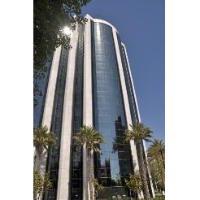Rialto Misdemeanor Lawyer, California
Sponsored Law Firm
-
 x
x

Click For More Info:
-
Orange County Criminal Attorney Law Firm
4000 MacArthur Blvd Suite 621 East Tower Newport Beach, CA 92660» view mapCriminal Defense Proudly Serving Orange County
You need an attorney with criminal defense knowledge who will vigorously protect your rights and interests.
800-956-1140
Peter Francis Iocona
✓ VERIFIEDRated by Super Lawyers, Peter F. Iocona - Attorney at Law, and his partners, Alan Castillo and Marlo Cordero, formed "The SoCal Law Network" and selec... (more)
Early Marlow Hawkins
✓ VERIFIEDEarly Hawkins proudly serving Santa Ana, CA and neighboring communities in the areas of criminal, DUI-DWI, white collar crime, felony, and misdemeanor... (more)
Karren Kenney
✓ VERIFIEDKarren Kenney was a Deputy Public Defender for almost 12 years where she became one of the best Orange County criminal defense attorneys, defending ev... (more)
Andrew Marc Stein
✓ VERIFIEDAndrew M. Stein has been practicing law for over thirty years and has specialized in the area of criminal law and civil rights. He received his Bachel... (more)
Sue S Jung
✓ VERIFIED20+ YRS CRIMINAL LAW EXPERIENCE, FORMER DEPUTY DISTRICT ATTORNEY AND DEPUTY PUBLIC DEFENDER I am passionate about helping people using personalized... (more)
Renee Michelle Daughetee
✓ VERIFIEDIntroducing Renee Daughetee: Your Resolute Advocate in California's Criminal Justice System In the intricate landscape of California's criminal jus... (more)
FREE CONSULTATION
CONTACTAlisha C Frank
FREE CONSULTATION
CONTACTFREE CONSULTATION
CONTACT Michael Holmes Newport Beach, CA
Michael Holmes Newport Beach, CA AboutOrange County Criminal Attorney Law Firm
AboutOrange County Criminal Attorney Law Firm Practice AreasExpertise
Practice AreasExpertise







